This website uses cookies so that we can provide you with the best user experience possible. Cookie information is stored in your browser and performs functions such as recognising you when you return to our website and helping our team to understand which sections of the website you find most interesting and useful.

The Integration Costs of Wind and Solar Power
- Photovoltaics, Power system planning, Wind energy
Connecting new power plants to power grids results in integration costs from delivering power to the consumer. This course explains how to estimate the impact of variable renewable energy (VRE) on these costs.
€240 excl. VAT
- 19% VAT: private customers resident in the EU, companies/ public organisations and NGOs in Germany
- No VAT: private customers resident outside the EU, companies/ public organisations and NGOs outside Germany
1 month
About 20 hours
English
Online
01/04/2024
03/07/2024
Description
Description
When a new power plant is constructed, the developer expects to incur costs for planning, building and connecting the unit. However, integrating this unit into the existing power system results in additional costs related to delivering the produced power to the consumer at the precise time it is needed. These costs together are grouped under the term integration cost.
Because power generation from wind and solar photovoltaic (PV) power plants depends on weather conditions and therefore varies over time, the cost of integrating these units into a power system differs substantially from the integration cost of dispatchable power plants. Thus, understanding and being able to estimate the integration cost of variable renewable energy (VRE) (wind and solar PV) is key to determining total economic cost. This then allows for a welfare-optimal generation mix in the process of planning the transition to a decarbonised electricity system.
This course focuses on:
- Grid costs
- Balancing power costs
- Effects on existing power plant utilisation
- Total system cost approach
Receive a reminder one week before the registration deadline.
Learning Objectives
Learning objectives
After completing this course, you should be able to:
- explain the concept of integration cost, its purpose, definition and relevant points of discussion;
- describe different approaches to the quantification of grid costs, balancing costs and the economic effects on existing conventional power plant utilisation;
- specify the range of grid costs, balancing costs and economic effects on existing conventional power plant utilisation, and discuss possible reasons for variations in estimates; and
- discuss the total system cost approach as an alternative for comparing integration cost in different scenarios and identify its strengths and limitations.
Upon successful completion of the course, participants will receive a RENAC Certificate.
Target Groups
Target groups
This course is suitable for those whom:
- would like to get a detailled insight into the economics of grid integration of wind and PV;
- want to compare grid integration costs with benchmark data; or
- need to develop grid integration strategies for photovoltaic and wind power.
RENAC certificate upon successful completion of the course for participants who score 70% or higher on the exam.
Features
Features
Flexibility to study at any time and from any location
Moderated discussion forum for students
Multimedia learning materials
RENAC certificate upon successful completion of the training
We offer discounts for our alumni, group bookings, and multiple purchases. Contact us for further details.
Contact with learning facilitators
Self-assessments
Certification
Additional Information
Lecturers
Lecturers
There aren't any lecturers in this training.
-
Description
-
Learning Objectives
-
Target Groups
-
Features
-
Lecturers
Description
When a new power plant is constructed, the developer expects to incur costs for planning, building and connecting the unit. However, integrating this unit into the existing power system results in additional costs related to delivering the produced power to the consumer at the precise time it is needed. These costs together are grouped under the term integration cost.
Because power generation from wind and solar photovoltaic (PV) power plants depends on weather conditions and therefore varies over time, the cost of integrating these units into a power system differs substantially from the integration cost of dispatchable power plants. Thus, understanding and being able to estimate the integration cost of variable renewable energy (VRE) (wind and solar PV) is key to determining total economic cost. This then allows for a welfare-optimal generation mix in the process of planning the transition to a decarbonised electricity system.
This course focuses on:
- Grid costs
- Balancing power costs
- Effects on existing power plant utilisation
- Total system cost approach
Receive a reminder one week before the registration deadline.
Learning objectives
After completing this course, you should be able to:
- explain the concept of integration cost, its purpose, definition and relevant points of discussion;
- describe different approaches to the quantification of grid costs, balancing costs and the economic effects on existing conventional power plant utilisation;
- specify the range of grid costs, balancing costs and economic effects on existing conventional power plant utilisation, and discuss possible reasons for variations in estimates; and
- discuss the total system cost approach as an alternative for comparing integration cost in different scenarios and identify its strengths and limitations.
Upon successful completion of the course, participants will receive a RENAC Certificate.
Target groups
This course is suitable for those whom:
- would like to get a detailled insight into the economics of grid integration of wind and PV;
- want to compare grid integration costs with benchmark data; or
- need to develop grid integration strategies for photovoltaic and wind power.
RENAC certificate upon successful completion of the course for participants who score 70% or higher on the exam.
Features
Flexibility to study at any time and from any location
Moderated discussion forum for students
Multimedia learning materials
RENAC certificate upon successful completion of the training
We offer discounts for our alumni, group bookings, and multiple purchases. Contact us for further details.
Contact with learning facilitators
Self-assessments
Certification
Additional Information
Lecturers
There aren't any lecturers in this training.
Testimonials
Interested in RENAC trainings?

Type of training:
Next Date:
Duration:
Fee:

Type of training:
Next Date:
Duration:
Fee:

Type of training:
Next Date:
Duration:
Fee:

Type of training:
Next Date:
Duration:
Fee:

Type of training:
Next Date:
Duration:
Fee:

Type of training:
Next Date:
Duration:
Fee:

Type of training:
Next Date:
Duration:
Fee:

Type of training:
Next Date:
Duration:
Fee:

Type of training:
Next Date:
Duration:
Fee:

Type of training:
Next Date:
Duration:
Fee:
© 2024 | Renewables Academy (RENAC) AG





